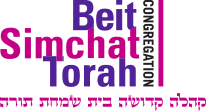
Become One with the Other
הַנִּ֨סְתָּרֹ֔ת לַיהֹוָ֖ה אֱלֹהֵ֑ינוּ וְהַנִּגְלֹ֞ת לָ֤ׄנׄוּׄ וּׄלְׄבָׄנֵ֙ׄיׄנׄוּ֙ׄ עַׄד־עוֹלָ֔ם לַעֲשׂ֕וֹת אֶת־כׇּל־דִּבְרֵ֖י הַתּוֹרָ֥ה הַזֹּֽאת׃
The hidden things are for Hashem, our God, but the revealed things are for us and for our children forever, to carry out all of the words of this Torah.
—Deuteronomy 29:28
Beyond the binary of the hidden and revealed lies the inviting curiosity of knowing that something is being concealed, but not knowing exactly what. For example, the unusual dots above the words “for us and for our children forever – לָ֤ׄנׄוּׄ וּׄלְׄבָׄנֵ֙ׄיׄנׄוּ֙ׄ עַׄד”, should give us pause to ask what truth are we meant to uncover in this partially exposed call for attention. If we look even closer, we observe that the application of these 11 dots stops after the first letter in the word “עַׄד”. Clearly something is going on, but it’s not so clear what it is.
In a similar vein, how many times did we read the opening line of the Shema before we realized that the letters “ע” and “ד” are larger than the rest of the letters: שְׁמַע יִשְׂרָאֵל יְהֹוָה אֱלֹהֵֽינוּ יְהֹוָה אֶחָד – Hear O’ Israel, the Lord our God, the Lord is one? How are we meant to understand the teaching being contained in this distinctive orthography? Often the absolute opposite of something is perceived as the closest thing to the thing itself, and therefore requires additional emphasis to clarify the distinction. So we close our eyes [1] while we recite the first declaration of the Shema, to focus better and clearly enunciate that God is “אֶחָד – echad – one” and not “אחר – acher – another.” [2]
Jewish thought considers the “oneness” of the Divine to be reinforced through our unity and connectedness to each other. Our holiness is sourced in the Holy One, being created in God’s image. These two orientations of holiness, directly as an individual or as part of community, inspire many people to declare their yichud – unification to God and the entirety of the Jewish people before learning Torah, praying, or fulfilling a commandment. [3]
By contrast, the ultimate desanctification of a person is in separating them through “othering.” The first time the word “אחר – other” is used in the Torah is when Cain kills his brother Abel: וַתִּקְרָ֥א אֶת־שְׁמ֖וֹ שֵׁ֑ת כִּ֣י שָֽׁת־לִ֤י אֱלֹהִים֙ זֶ֣רַע אַחֵ֔ר תַּ֣חַת הֶ֔בֶל כִּ֥י הֲרָג֖וֹ קָֽיִן – and she bore a son and named him Seth, meaning, “God has provided me with another offspring in place of Abel, for Cain had killed him. [4] The verse can also be read homiletically as “God provided me with a child [that was seen as] “other,” instead of [being seen as] Abel, which is why Cain killed him.
Acher (אַחֵ֔ר) is also the dishonorable title given to Elisha Ben Abuya, the most famous apostate of the Talmud, to erase his true identity. Acher is marginalized by everyone in the religious community except for his main student, the influential Rebbe Meir. Rebbe Meir takes the interconnectivity of souls very literally and consequently is incapable of ostracizing his rebbe. He taught:
– רַבִּי מֵאִיר אוֹמֵר: גְּדוֹלָה תְּשׁוּבָה, שֶׁבִּשְׁבִיל יָחִיד שֶׁעָשָׂה תְּשׁוּבָה — מוֹחֲלִין לְכׇל הָעוֹלָם כּוּלּוֹ
Great is repentance because the entire world is forgiven on account of one individual who repents.
Rebbe Akiva Eiger, [5] in his commentary found on the same page of Talmud [6], quotes the great kabbalist Rema MiPano [7] who explains that the concept of כל ישראל ערבין זה בזה – the covenant of being responsible for each other, doesn’t just obligate us to be guarantors for each other, but the word for “guarantor – ערב” also translates as a mixture. He renders Rebbe Meir’s teaching to mean that when one individual repents, the portion of their soul which is contained within each of us, is also forgiven. Cutting off another is a form of self-amputation.
There are ten places in the Torah where dots are found above the letters in the scroll. Rashi explains that the dots above “for us and for our children forever – לָ֤ׄנׄוּׄ וּׄלְׄבָׄנֵ֙ׄיׄנׄוּ֙ׄ עַׄד” mark a shift in our communal obligation when we crossed over the Jordan and accepted the responsibility for the welfare of each other for future generations. [8]
These 11 dots correspond to the 11 letters in God’s name in the beginning of the verse “The hidden things are for Hashem our God, – הַנִּ֨סְתָּרֹ֔ת לַיהֹוָ֖ה אֱלֹהֵ֑ינוּ.[9]” The mystics [10] understand this to mean that part of God’s name י-ה-ו-ה is currently hidden, while the “ו-ה”, which has a numerical value of 11, is revealed. The verse is inviting us to reveal the concealed aspects of the Divine that are now deep inside of us, and the Torah.
The only difference between the dehumanizing of “אַחֵ֔ר”, which has a numerical value of 209, and the attachment of allyship “חבר”, equalling 210, is just the Oneness of God. The letter “ד” in “לָ֤ׄנׄוּׄ וּׄלְׄבָׄנֵ֙ׄיׄנׄוּ֙ׄ עַׄד” is being highlighted to testify [11] that God’s name and total revelation won’t be complete until we end our practice of othering – אַחֵ֔ר and replace it with unity – אֶחָד.
[1] See Code of Jewish Law 61.
[2] Ibid – ידגיש בדלי”ת שלא תהא כרי”ש. The “ע” is also enlarged so it is clear that it isn’t “שמא – perhaps”.
[3] See Me’or Einayim Genesis 37: לשם יחוד קודשא ברוך הוא וכו׳ בשם כל ישראל.
[4] Genesis 4:25.
[5] Hungary (1761 – 1837).
[6] Yoma 86b.
[7] Italy (1548 – 1620).
[8] See Gur Aryah.
[9] Tosfos Sanhedrin 43b.
[10] See Rav Moshe Dovid Velie page 318.
[11] In Hebrew, “עד” means both “witness” and “until.”
Rabbi Mike Moskowitz is the Scholar-in-Residence for Trans and Queer Jewish Studies at Congregation Beit Simchat Torah. He is a deeply traditional and radically progressive advocate for trans rights and a vocal ally for LGBTQ inclusivity.
